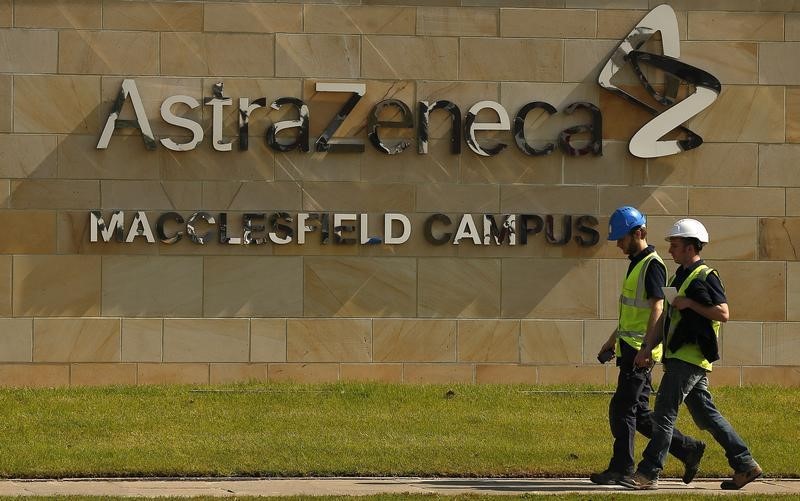Investing.com — Shares of AstraZeneca (LON:) dropped on Thursday following the presentation of disappointing final overall survival data from the TROPION-Lung-01 (TL-01) trial at the World Conference on Lung Cancer in San Diego.
At 5:09 am (0909 GMT), AstraZeneca was trading 4.8% lower at £12,108.
The study evaluated the company’s experimental drug, datopotamab deruxtecan (Dato-Dxd), as a second-line treatment for patients with non-small cell lung cancer (NSCLC).
Analysts from BofA Securities and Stifel expressed concerns about the trial results, which showed a lack of improvement in overall survival, raising questions about the drug’s regulatory approval prospects and its commercial potential.
The TL-01 trial tested Dato-Dxd, an antibody-drug conjugate (ADC) targeting Trop-2, against docetaxel in patients who had progressed after first-line therapies, such as pembrolizumab or chemotherapy.
Although there is an unmet medical need in this patient population, the final OS data did not meet expectations, prompting analysts to warn of potential delays or even a rejection from the U.S. Food and Drug Administration.
The OS hazard ratio for the non-squamous NSCLC subgroup deteriorated from previous interim data. At the European Society for Medical Oncology (ESMO) 2023, the HR was 0.77, but it has now risen to 0.84.
More concerning is the fact that the upper confidence interval (CI) has risen from 1.01 to 1.05, meaning the survival benefit is no longer statistically big, as crossing 1.0 suggests the drug may not improve survival over the current standard of care.
Although patients in the non-squamous subgroup saw an absolute OS improvement of 2.3 months (14.6 months for Dato-Dxd vs. 12.3 months for docetaxel), the data failed to reach nominal statistical significance.
This marginal benefit falls on the boundary of what oncologists consider clinically meaningful and raises concerns about whether the FDA will view the results as sufficient for approval.
The trial data were particularly disappointing for patients in the non-squamous, non-actionable genomic alterations (AGA) subgroup, which represents the majority of NSCLC patients. This group experienced only a 1.3-month OS improvement (HR=0.89), while the HR for patients with AGA (17% of the trial population) was stronger at 0.65.
The weak performance in non-AGA patients suggests a limited benefit for much of the target population, reducing the drug’s overall potential impact.
AstraZeneca has been investigating the use of a biomarker test to better predict which patients are likely to respond to Dato-Dxd. The QCS-NMR assay measures Trop-2 expression, with early analyses indicating that patients with higher Trop-2 levels responded better to the drug.
However, the biomarker analysis remains exploratory and was applied retroactively in the TL-01 trial, raising questions about its validity in the regulatory review process.
Both BofA Securities and Stifel analysts expressed concerns that the FDA might request additional studies to validate the biomarker’s predictive power before granting approval.
The regulatory agency could either delay the decision or approve a narrower label limited to biomarker-positive patients. This would shrink the potential market for Dato-Dxd, which AstraZeneca had initially hoped would benefit a broader NSCLC population.
Read the full article here


